On November 10, 2025, the National Anticorruption Bureau of Ukraine (NABU) and Specialized Anticorruption Prosecutor’s Office (SAPO) unveiled a massive corruption scheme in Ukraine’s energy sector, involving embezzlement and laundering of at least $100 million. The scheme is centered on Energoatom, Ukraine’s national nuclear power operator, which runs the country’s four nuclear power plants with 15 nuclear reactors (one of these, the Zaporizhzhia nuclear power plant with its six reactors, is occupied by Russia). Ominously, the scheme involves individuals with close connections to the office of the president and to Ukrainian President Volodymyr Zelenskyy personally.
The revelation of massive graft amid the war shook the Ukrainian public sphere to its core, yet headlines soon shifted to the 28-point “peace plan,” of suspected Russian provenance, presented to Kyiv by a U.S. envoy on November 20, and the U.S.-Ukrainian negotiations in Geneva that followed on November 23. The rot within the Ukrainian government uncovered by the NABU investigation, however, will not go away. In fact, as the case unfolds, more unpleasant discoveries are likely to surface, threatening to irreparably mar Zelenskyy’s legacy.
The NABU and SAPO are key anti-corruption institutions established in the wake of Ukraine’s 2014 Revolution of Dignity that sought to clean up systemic corruption and abuse of power in the country. During its 15-month-long covert investigation, code-named “Operation Midas,” the NABU collected 1,000 hours of audio recordings and conducted over 70 searches. So far, seven people have been indicted for embezzlement, bribery, and illicit enrichment.
At the center of the scandal is the figure of Timur Mindich, a businessman and a co-owner of “Kvartal-95,” a media company founded by Zelenskyy before he became president. The operation Mindich oversaw was brutally simple: two people installed at Energoatom, Ihor Myroniuk and Dmytro Basov, controlled all contracts the company signed with suppliers, from whom they demanded a 10%-15% kickback. Any supplier who refused risked going unpaid for the goods and services provided to Energoatom, as the state company has been absolved from having to pay its debts during wartime.
The money from kickbacks was channeled and laundered through a back office run by Mindich’s friend and business partner Oleksandr Tsukerman with the help of three other individuals: Ihor Fursenko, Lesya Ustymenko, and Lyudmyla Zorina. Myroniuk, Basov, Fursenko, Ustymenko, and Zorina have been detained. Mindich and Tsukerman fled the country. Oleksiy Chernyshov, former minister of national unity and vice prime minister, has also been connected to the scheme and was charged by the NABU and SAPO with illicit enrichment in a separate case.
Other top figures, while not officially charged, appear directly implicated. Herman Halushchenko, minister of energy in 2021-2025, features prominently in the “Mindich tapes” as someone providing political cover and access to the office of the president. In July 2025, Halushchenko was appointed minister of justice, and Svitlana Hrynchuk, suspected of close personal ties to Halushchenko, became minister of energy.
It is widely feared that the Mindich scheme is just the tip of the corruption iceberg. Some of the suspects in the Energoatom scheme have had connections to Andriy Derkach, the former Ukrainian politician and one-time president of Energoatom in 2006-2007, who, among other things, is reported to have run a network of Russian agents in Ukraine in the lead-up to the full-scale invasion. Sanctioned by the United States and Ukraine, Derkach fled in January 2023 to Russia, where he currently serves as a senator. Yet Derkach allegedly maintained remote influence over the Ukrainian energy sector, and Energoatom in particular, through people like Myroniuk, who once worked as his advisor, and Halushchenko, although the latter denied any such connection. The back office of the Mindich operation was housed in an apartment belonging to the Derkach family.
The degree of involvement in or awareness of the scheme by the office of the president is of much interest and even greater concern. In response to the scandal, Zelenskyy condemned corruption and called for cooperation with the NABU investigation. On Zelenskyy’s request, the Cabinet of Ministers promptly fired Halushchenko as justice minister and accepted Hrynchuk’s resignation as energy minister, both on November 13. On November 17, Prime Minister Yulia Svyrydenko announced a comprehensive audit and “reloading” of the entire energy sector, as well as the defense sector. Mindich and Tsukerman have been sanctioned by Ukraine’s National Security and Defense Council and put on the wanted list.
Still, these measures are unlikely to quell the public distrust of the office of the president. The concern is not only that Mindich and Chernyshov have been Zelenskyy’s close associates. Looming over the scandal is the figure of Andriy Yermak, the chief of the president’s office and the reputed éminance grise in Zelenskyy’s administration. He has held a firm grip on all cabinet appointments and every major policy decision. It is hardly conceivable that a man with so much sway over the government would have been unaware of graft on this scale and at this level. The question is, was Yermak directly implicated, and has he tried to impede the investigation?
Yaroslav Zhelezniak, a Ukrainian parliamentary deputy from the oppositional “Holos” party, alleged that the mysterious “Ali Baba,” who shows up in the NABU recordings (all individuals involved in the scheme went by invented noms de guerre), is none other than Yermak, whose initials are A.B. for Andriy Borysovych.
Earlier this year, on July 22, the Ukrainian parliament, the Rada, where Zelenskyy’s faction, “The Servant of the People,” holds a majority, adopted a law curbing the autonomy of the NABU and SAPO. This provoked a wave of mass protests across Ukraine, the first such open expression of opposition to the government’s policies since the beginning of Russia’s full-scale invasion in 2022. In response to the protests, on July 31, the Rada revoked its decision and reinstated the autonomy of the anti-corruption institutions. One of Ukraine’s most influential investigative media outlets, Ukrayinska Pravda, alleged on July 25, 2025, that the crackdown on the NABU and SAPO was instigated by the office of the president to impede the Mindich investigation, at which time most Ukrainians heard his name for the first time.
Following the revelations by the NABU, the pressure on the president to fire Yermak grew, not least inside his own parliamentary faction. Instead, Zelenskyy doubled down and even appointed Yermak to lead the Ukrainian delegation to the negotiations with the Americans in Geneva last weekend.
The president thus chose not to take responsibility for allowing, either through neglect, willful blindness, or complicity, for graft to root on his watch. By doing so, he has undermined his legitimacy at home and credibility abroad at a time of existential crisis for the country which he serves and represents, and when the integrity of his office would have served as a great asset. Zelenskyy could still try to recover by firing Yermak and exorcising from his office and the government anyone implicated in the scandal, before new, more incriminating details come to light. But the window for such a bold move is closing quickly. Unfortunately, once it’s shut, the cost of the corruption debacle will not be borne by Zelenskyy alone but by the whole Ukrainian nation.
Given the facts on the battlefield, where Ukraine cannot de-occupy its territory by military means or decisively defeat Russia, any deal to end the war will come with compromises painful for Ukraine. Added to Ukraine’s predicament is the Trump administration’s desire to end the war quickly, without regard for how fair or sustainable the resulting “peace” will be. Now the Kremlin and the White House will try to exploit the corruption scandal to impose even more punishing terms. Meanwhile, the compromises that Ukrainians could be asked to accept will be even less palatable at home when delivered by a president who let corruption erode his domestic standing.
The silver lining of the unfolding Ukrainian drama is that the country’s anti-corruption institutions are doing exactly what they have been established to do—ferreting out corrupt operators—and that these institutions enjoy the broad support of the Ukrainian public and civil society. Indeed, the war with Russia and the war on systemic corruption inside Ukraine are closely related: both are expressions of the stubborn refusal by millions of Ukrainians to surrender their freedom and dignity and of their determination to build a country of which they could be proud.
The Brookings Institution is committed to quality, independence, and impact.
We are supported by a diverse array of funders. In line with our values and policies, each Brookings publication represents the sole views of its author(s).
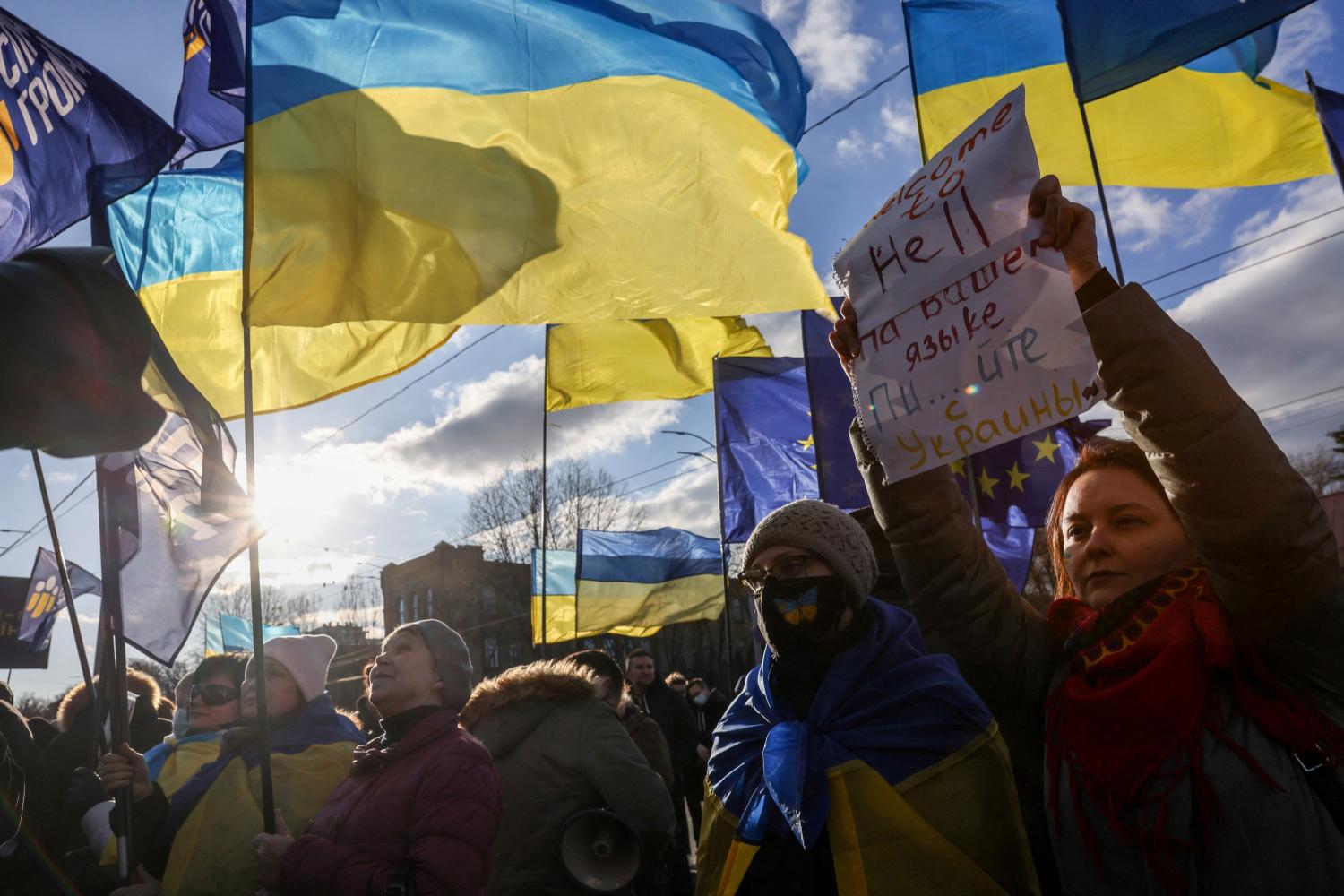
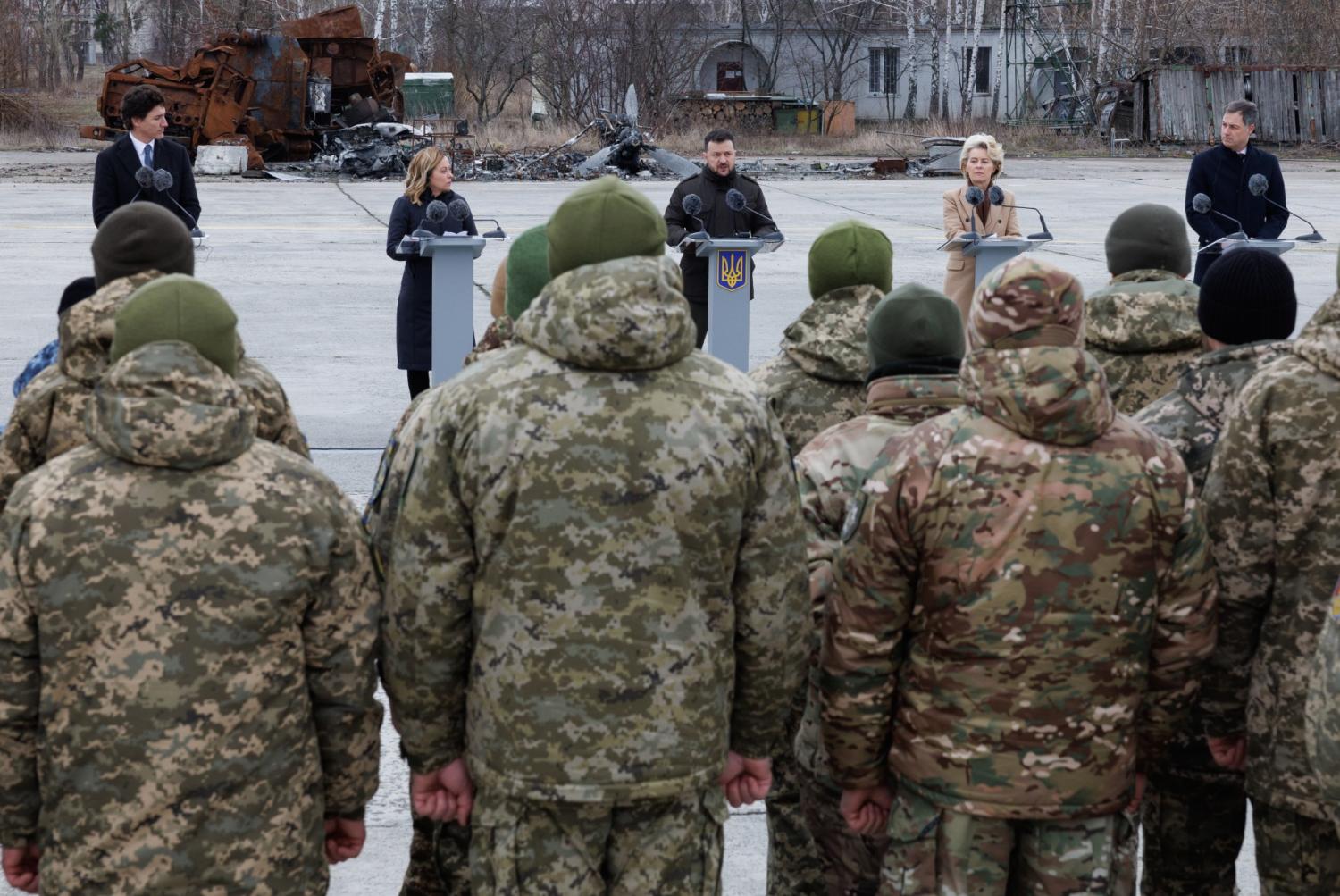


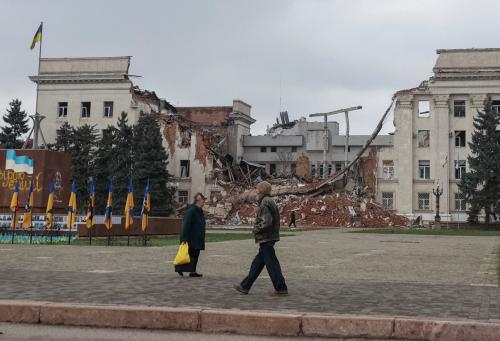
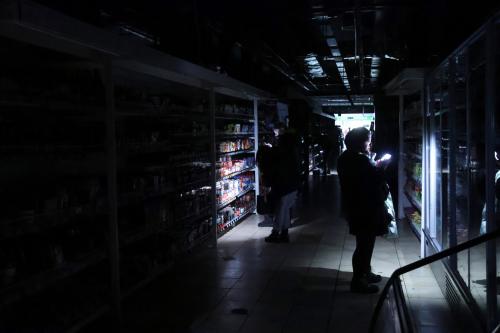
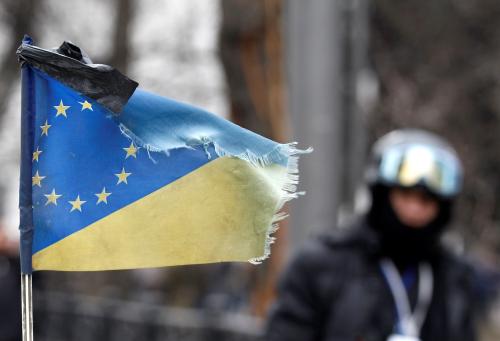


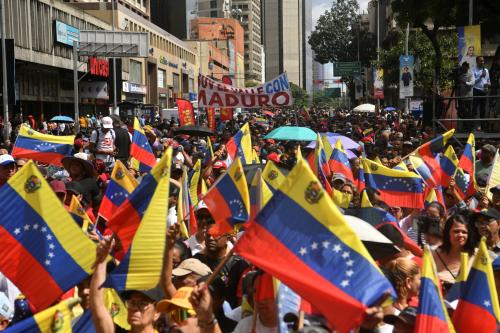
Commentary
War, peace, and corruption in embattled Ukraine
November 26, 2025